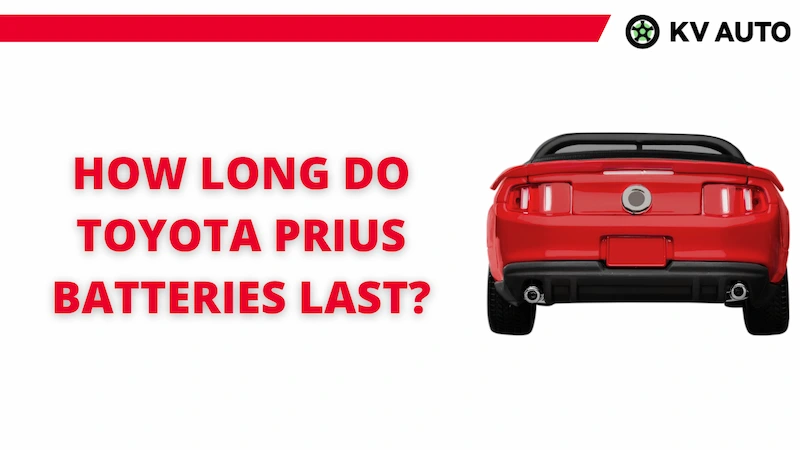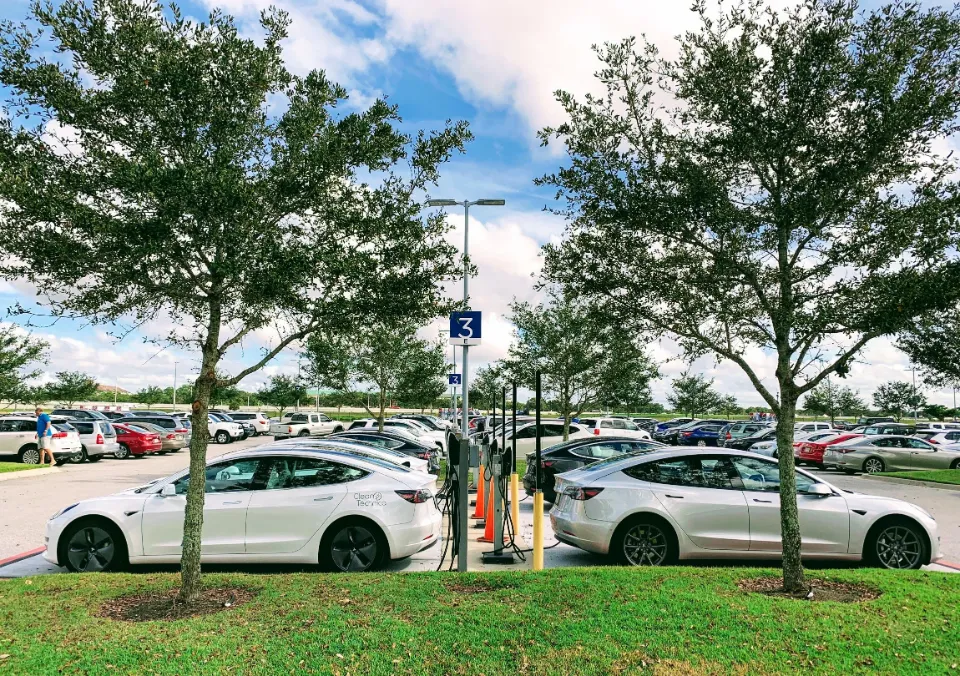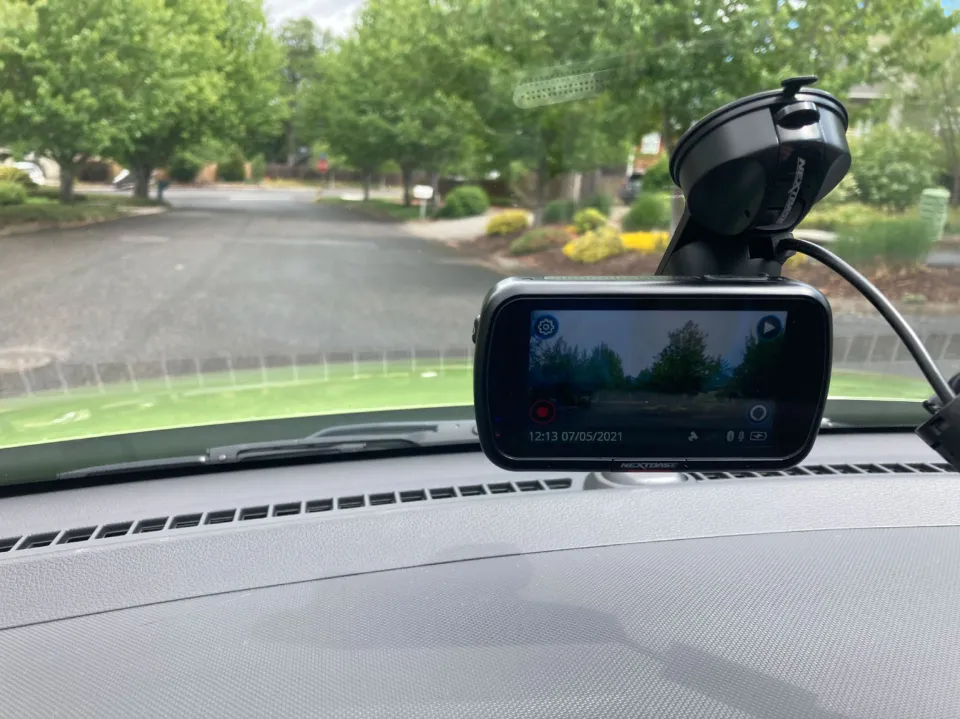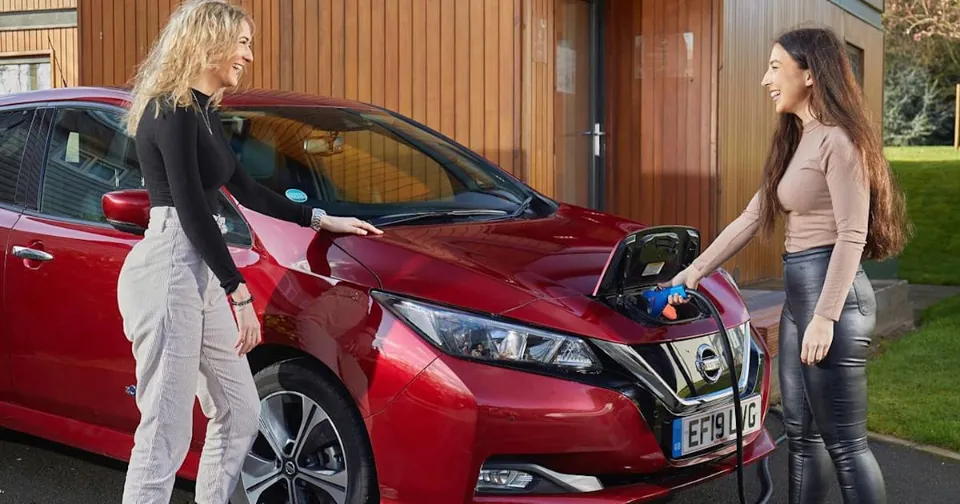However, just like with all cars, your Prius’ battery will eventually need to be replaced. But when will that be? How long do Toyota prius batteries last?
Priuses have been known to run without any battery issues for up to as many as 250,000 miles, which is impressive for any car! But being ready is preferable to having a breakdown on the highway.
If it can’t be used, how can you replace it? How do you maintain it? The Toyota Prius battery’s most frequently asked questions are addressed here. Keep reading.
Why Do Toyota Hybrid Batteries Last So Long?
Ten years ago, Consumer Reports compared the battery test outcomes of a 2002 Toyota Prius with over 200,000 miles driven to those of a nearly identical 2001 Prius with just 2,000 miles driven. The testers discovered very little performance degradation in the battery when it came to acceleration and fuel economy. (Are hybrid cars good for long distance driving? How far a typical hybrid can travel will be covered in this blog.)
They were also amazed to find that the high-mileage car still drove like new and had the original engine, transmission, and even shocks. That is a testament to the quality of Toyota vehicles.
Toyota hybrid vehicles have an effective nickel-metal hydride battery pack, which accounts for the batteries’ long lifespan. Battery management computer systems and a computer-controlled charge controller ensure that the battery charge doesn’t exceed around 80% or fall below 20%. This computer-controlled shallow cycling dramatically improves the battery’s cycle life, thermal management control, and long-term life.
Related: How Long Do Hybrid Car Batteries Last? About 100,000 miles should be covered by the majority of hybrid batteries. Some owners are able to increase this number to 200,000 with excellent maintenance.

Factors That Impact the Lifespan of Your Toyota Prius Battery
Its dependability is undoubtedly one of the reasons why the Toyota Prius has long been one of the most well-liked hybrid vehicles. You can depend on these cars for years of impressive fuel efficiency, which will enable you to make fewer trips to the gas station and help the environment. But your Prius’ battery will only run optimally for so long, and it’s important to know the factors that can affect its lifespan.
For starters, the distances you travel can affect your battery. If you frequently commute a long distance, your battery’s lifespan may begin to veer toward the lower end of that 8–10 year range. You should also be aware of the weather you’re driving in, as walking through snow and ice can drain your battery due to the subfreezing temperatures.
Here is a quick look at Hybrid Vs Gas Car. A gas-powered car only has a traditional gas engine, while a hybrid vehicle also has an electric motor. Since hybrid vehicles can switch between their gas and electric motors while being driven, they typically have higher fuel efficiency than their gasoline-powered counterparts.
How Does the Battery Work?
Internal combustion engines and battery-electric drive systems are combined in hybrid vehicles like the Prius to achieve excellent fuel efficiency and lower emissions. So, a Prius gets the majority of its power from the battery, allowing the internal electric motor to drive the vehicle.
Only the electric motor is utilized when traveling at less than 15 mph. Yet when you are going at a high speed (i.e. on a highway), then you’ll be using the gasoline engine.
When considering a gasoline/electric vehicle, take a quick look at the benefits of hybrid cars to see how many of these features you may not have previously thought about. The benefits of hybrid cars include Reducing Fuel Costs, Fewer Emissions, Instant Torque, No Idling, Tax Incentives…
What Can Cause a Prius Battery to Die?
But in all seriousness, a hybrid battery will experience the same wear and tear as any other auto component. However, neglecting your hybrid car’s battery could have more negative effects. Here are a few factors that could shorten the life of your hybrid battery.
- Routinely Fully Depleting the Charge
Driving the car until the battery is completely discharged each time, followed by a brief period without recharging, will compromise the battery’s overall health. The battery’s lifespan will also be shortened by thermal load if it is continuously charged to 100% capacity.
- Infrequent Maintenance
You’re the biggest variable in your car’s reliability by a long shot. Take care of your car, follow its maintenance schedule, and it’ll take care of you.
- Accident/Impact/Damage
As with anything, if you’re involved in an accident or damage the battery in some way, that can reduce the health and longevity of the hybrid battery considerably.
Editor’s Advice: How Much Does a Hybrid Battery Cost? Compared to conventional gasoline-only vehicles, hybrids use different batteries, and their prices range from $1,000 to $8,000. The final cost you’ll incur is determined by the make and model of your car as well as whether you choose a new or refurbished battery.
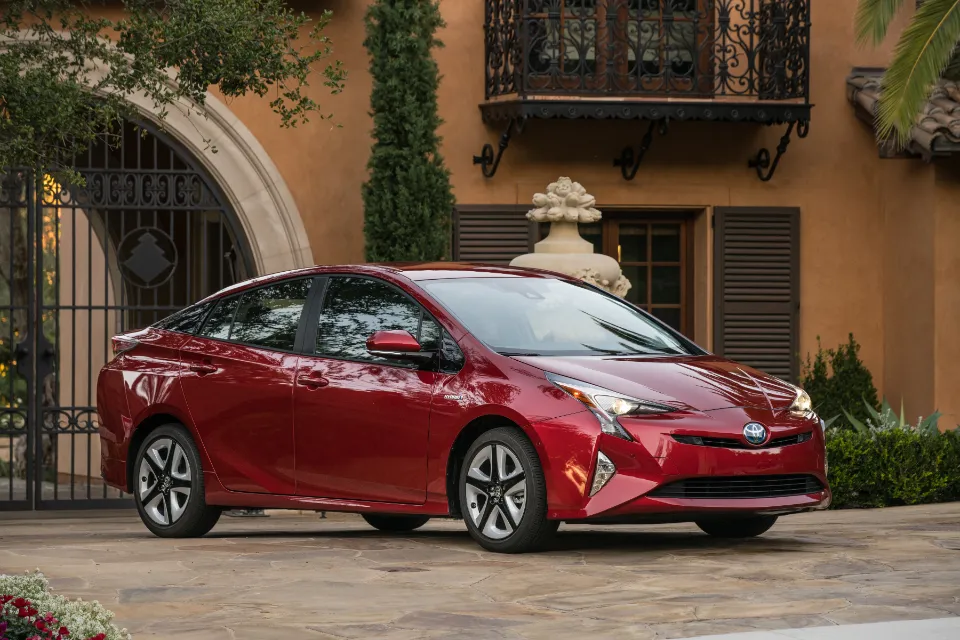
What Are the Symptoms of a Dying Battery?
You can tell your battery might be on its way out by a few telltale signs. Here are some of the most common symptoms:
- Poor fuel economy: Your battery may not be functioning properly if you’re getting poorer fuel economy than you would expect.
- rapid battery drain Your battery might need to be changed if it loses charge quickly and cannot maintain it.
- Battery is not starting. It may be past its prime if the battery doesn’t start up as quickly as it once did.
- strange electrical alterations. You might observe some strange electrical fluctuations, depending on what the battery is powering. Checking the battery is necessary at this point.
- sluggish driving abilities. A dying battery can have an impact on your car’s performance because the hybrid battery drives the wheels for a portion of the time. You might experience sluggishness or the impression of a clumsy transmission.
(A hybrid car runs on both gas and electricity. The face of environmentally friendly driving options has been drastically altered by this technology. Read on to find out more about Hybrid Car Batteries.)
How Do You Repair Hybrid Car Batteries?
When the cells inside a Prius battery dies, it means that one or more cells are no longer able to sustain the power that they are required to.
Without factoring in labor costs, the cost of a brand-new battery from a mechanic will range from $2,200 to $4,100. A used battery will set you back upwards of $1,500 while a refurbished one will set you back $1,500 if you decide to repair it yourself.
If you want to maintain your Prius battery so it’ll last longer, you need to makes sure the HEV battery pack cooling system is checked and cleaned annually.
Suggested reading: Thankfully, the market for used hybrids is rich enough for us to pick and choose those with the highest safety and reliability ratings, plus low overall cost of ownership. The best used hybrid cars are those listed here.
How Does a Prius Compare to Other Hybrids?
There are many hybrid vehicles on the market today in a variety of makes and models, even though the Prius was one of the first widely advertised and well-liked hybrids. What about the Prius then? First of all, you have to understand that there are two types of hybrid vehicles:
- Full hybrids
- Plug-in hybrids
The manner in which the battery is charged is the primary distinction between the two. An enormous battery pack that receives power from the gas engine and the brakes is used to recharge a full hybrid. The plug-in versions can be just that, plugged in. They can be charged by plugging them into an outlet for a period of time is what As per Consumer Reports. Question: What are Hybrids Vs. Plug-in Hybrids, and how do the two types of vehicle compare?
Editor’s Tip: Here’s the answer to “How Do Plug-In Hybrid Electric Cars Work?” In plug-in hybrid electric vehicles (PHEVs), an internal combustion engine (ICE) is powered by another fuel, such as gasoline, while an electric motor is powered by batteries. The ICE, a wall outlet, a charging device, or regenerative braking can all be used to charge PHEV batteries. Usually, the car runs on electricity until the battery is almost completely gone, at which point it switches over to using ICE.
Hybrid vehicles will vary based on the automaker and the features each one provides. Body styles and interior design will also be different depending on the make and trim level you choose. But the battery is where hybrid cars really differ from one another. The differences in this regard would surprise you. We’ll look at the batteries for the following vehicles to see how they all compare:
- Toyota Prius
- Lexus RX 400h
- Ford Escape
- Honda Insight
- Saturn Vue Green Line
28 Panasonic nickel metal hydride modules make up the battery in a Prius. Each of these contains six 1.2-volt cells says The series connection between them will result in a final output voltage of 201.6 volts, according to Green Car Reports. The nickel metal hydride battery in the Lexus RX 400h is housed in a recently created metal casing. With the boost converter working in tandem with its 240 cells, it is capable of producing up to 500 volts.
On the Ford Escape, you’ll find a battery pack made by Sanyo that contains 250 individual nickel hydride cells explains hybridCARS. Every cell is housed in a separate stainless steel case. They each produce 1.3 volts and are all welded and wrapped in groups of five. With the Honda Insight, you get 120 Panasonic nickel hydride D cells that put out 1.2 volts. This permits it to charge at 50 amps and discharge at 100 amps.
The Saturn Vue Green Line’s battery is made in the United States by Cobasys. Its nickel-metal hydride battery offers 36 volts and has a 14.5 kW power output and reception capacity.
Before choosing a hybrid, make sure you are aware of the variations since not all hybrids are created equal. Toyotas are renowned for being secure, dependable automobiles that can last for many generations. Your family might buy a Prius in the future.
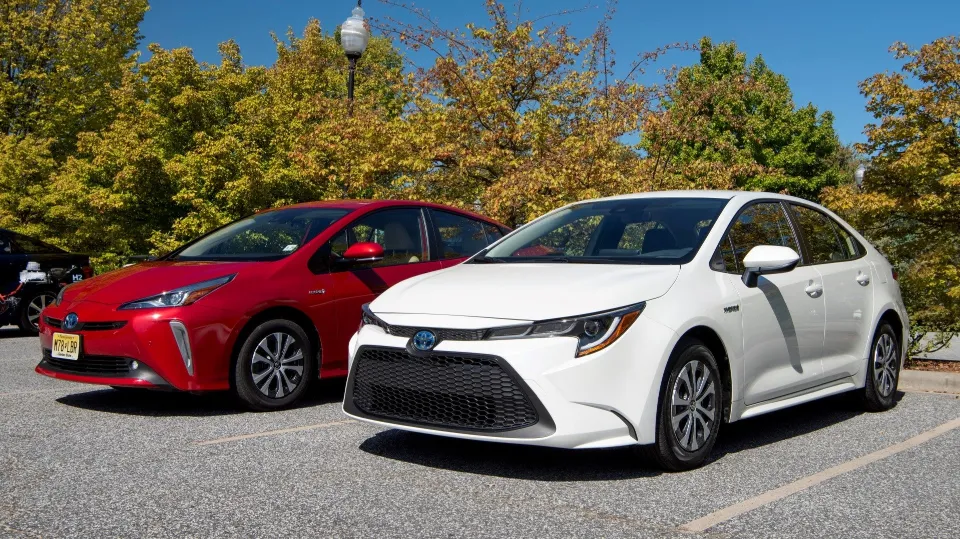
FAQs
Can a Prius Battery Die?
The hybrid battery in a Prius has an entropy date, just like every battery does. Its battery is mined, refined, constructed, installed into a car, and used until one day, just like everyone’s romantic relationships, it dies. The battery in your Prius will eventually need to be replaced, even if it takes ten or twenty years and hundreds of thousands of miles.
Can You Still Drive a Prius Without the Battery?
Possibly; however, the driving experience won’t be comparable to that of a car powered solely by gasoline if the hybrid battery fails. It might be jerky and harm the other drivetrain parts. Additionally, you might need to call a tow truck if it’s a system that also functions as a starter and alternator.
Then Do Hybrid Cars Cost More to Maintain?
Not really; the only time a hybrid requires additional maintenance expenses is if the battery pack malfunctions, which is relatively infrequent.
How Much Does It Cost to Replace a Prius Battery?
Depending on labor and parts required, the price will vary, but Toyota estimates that the hybrid battery replacement for a Prius will cost between $2,000 and $2,600 on average.
Summary: How Long Do Toyota Prius Batteries Last?
Priuses have been known to run without any battery issues for up to as many as 250,000 miles, which is impressive for any car! But being ready is preferable to having a breakdown on the highway.
If you have any questions, please leave a comment. KV Auto tries to give you the best car industry information. Thank you for reading.
Read about

